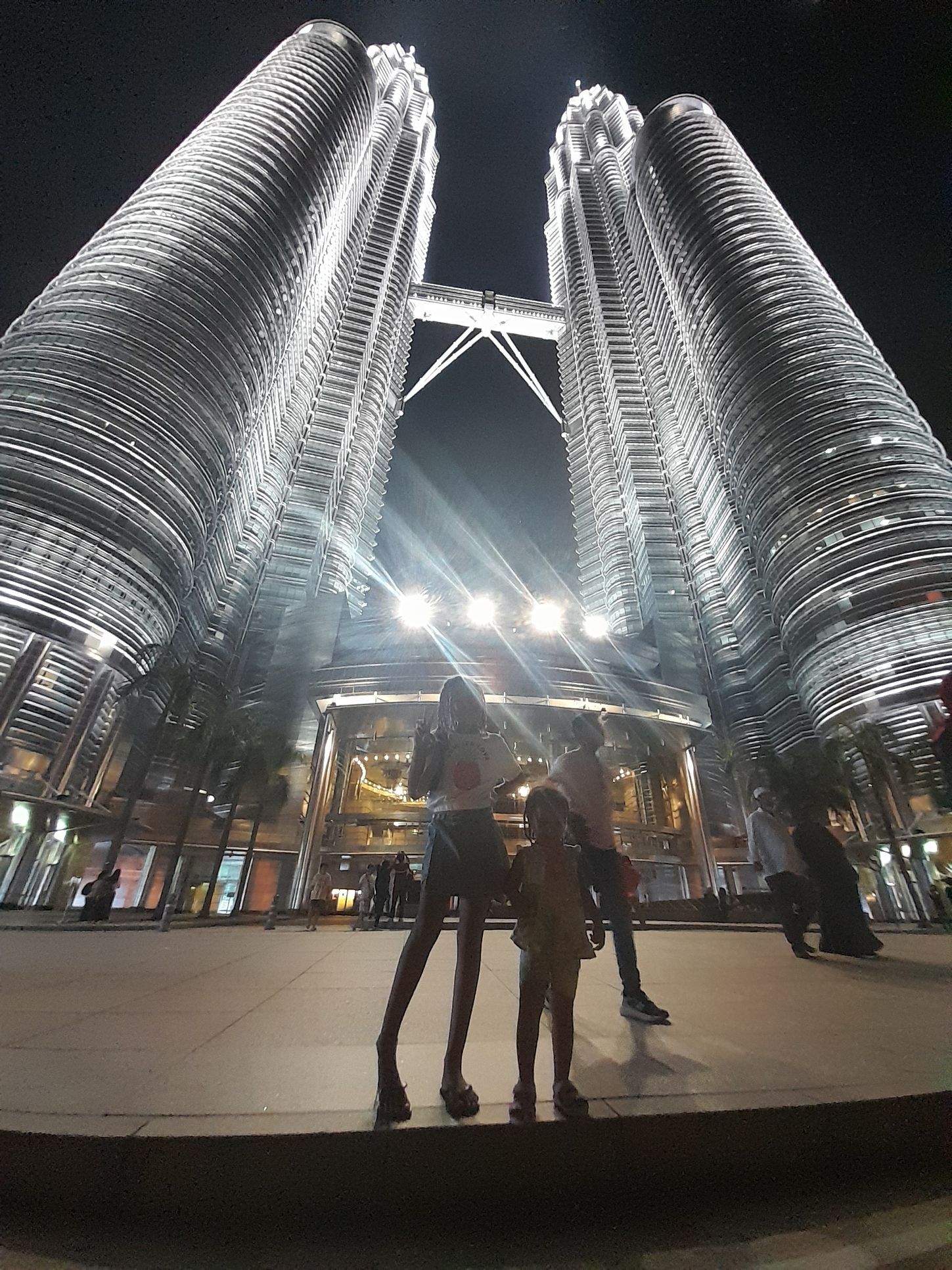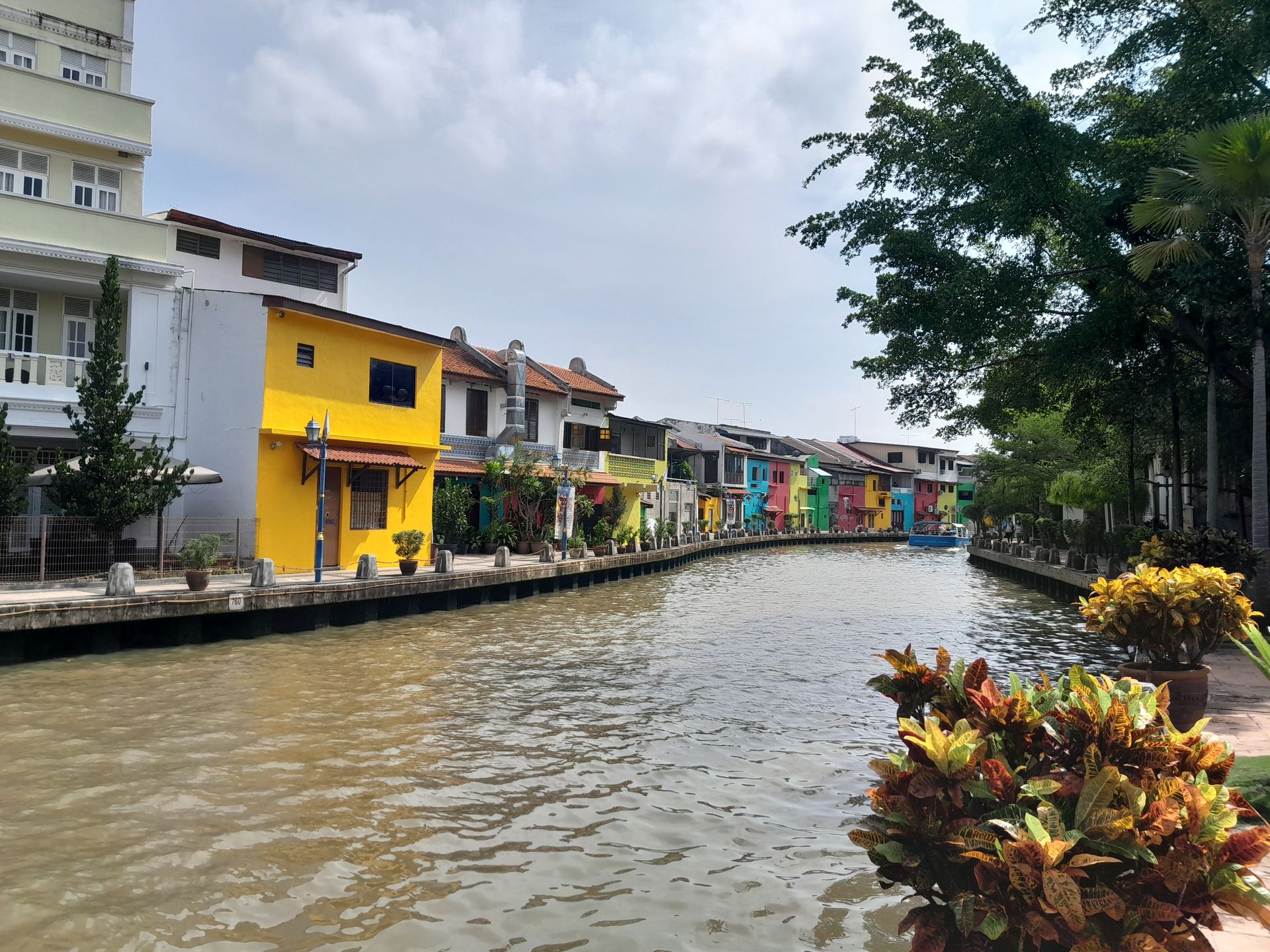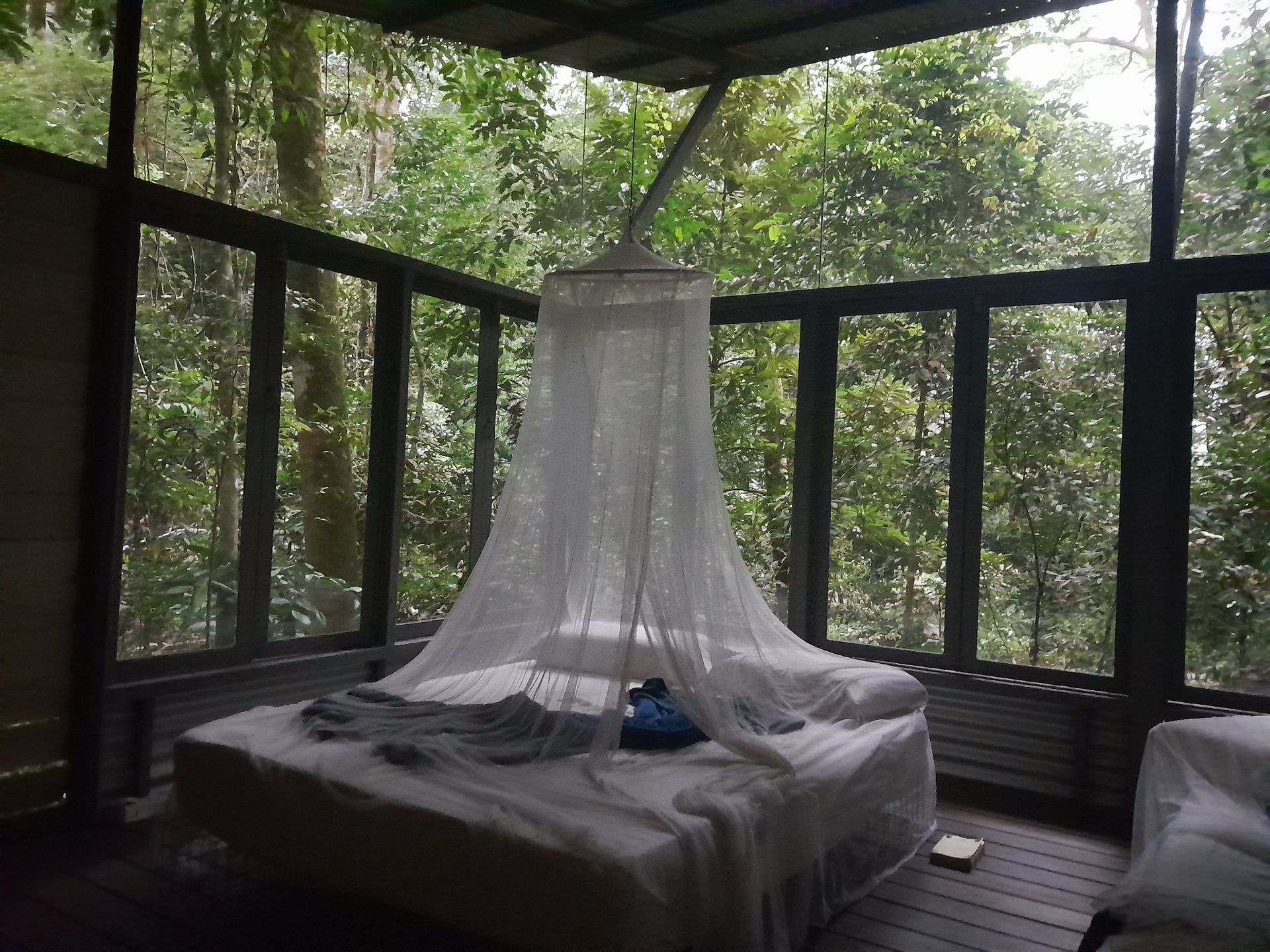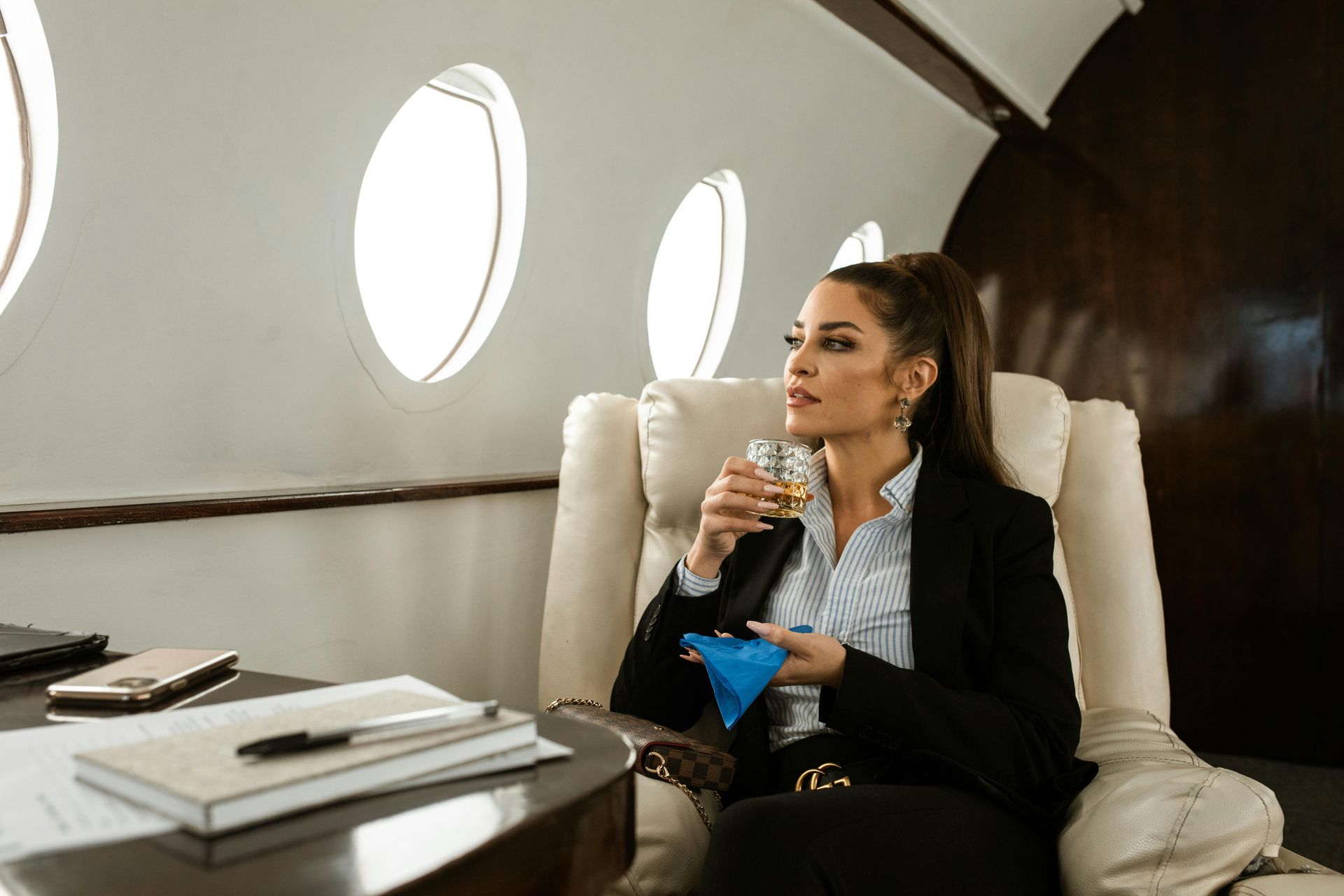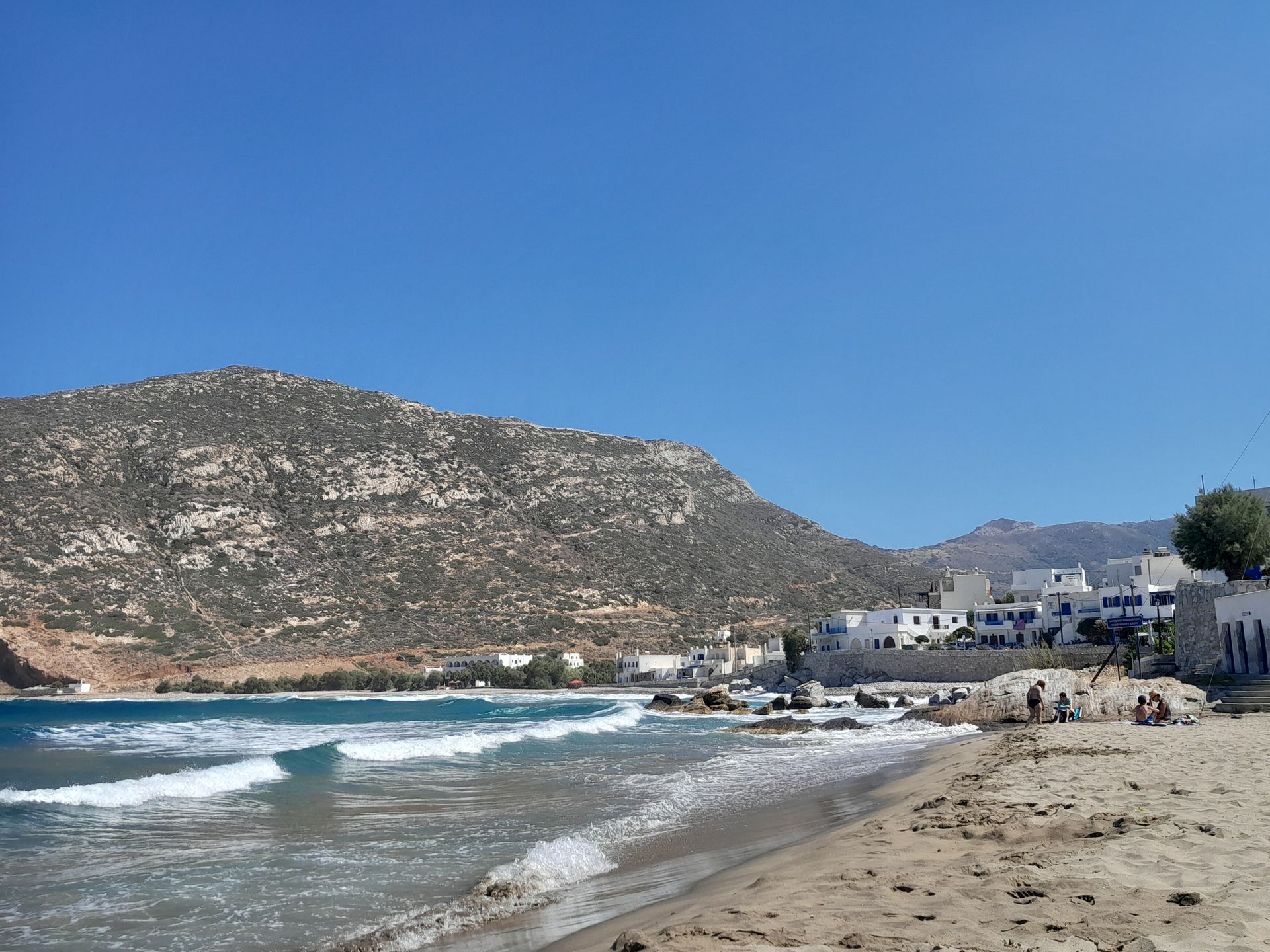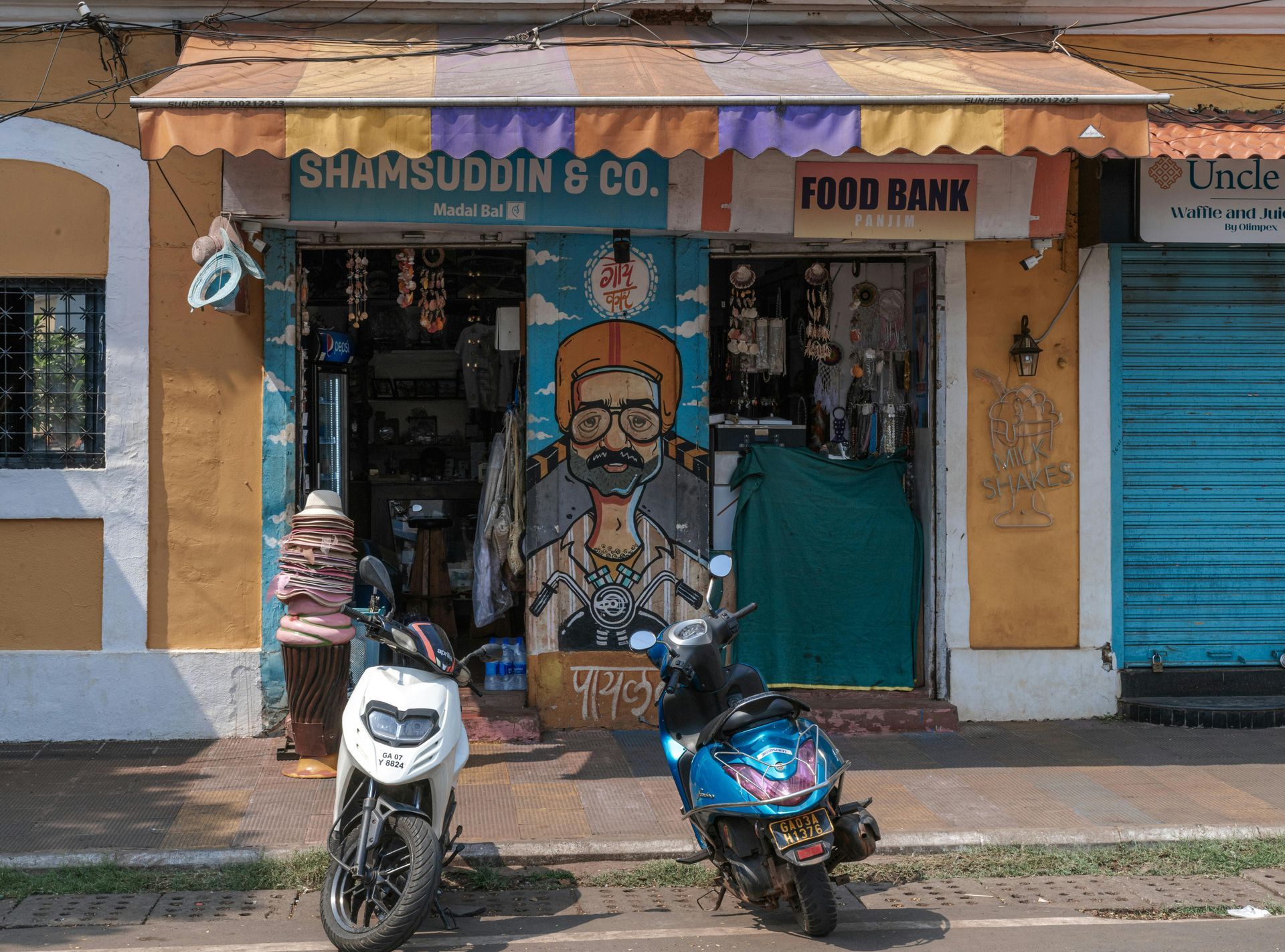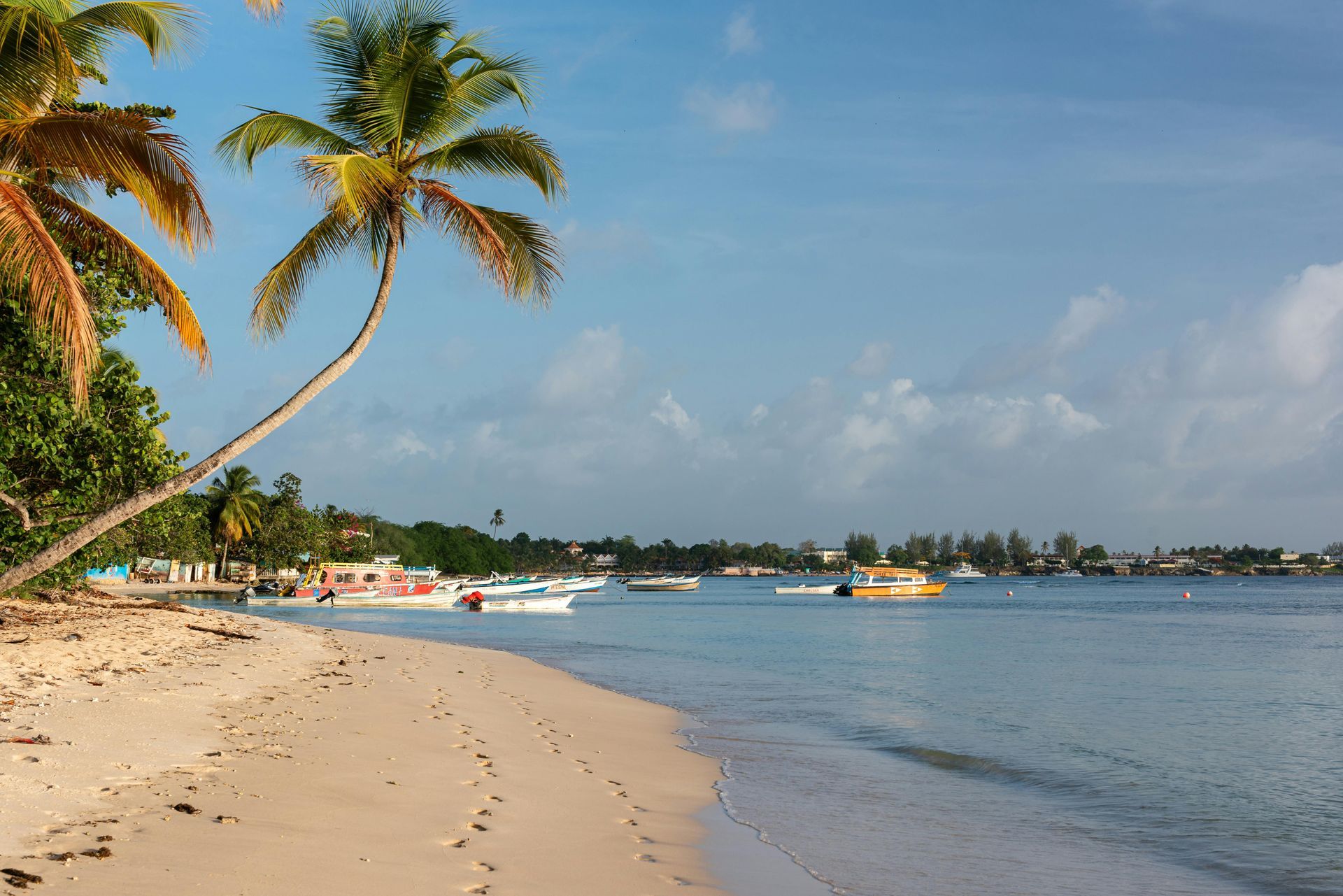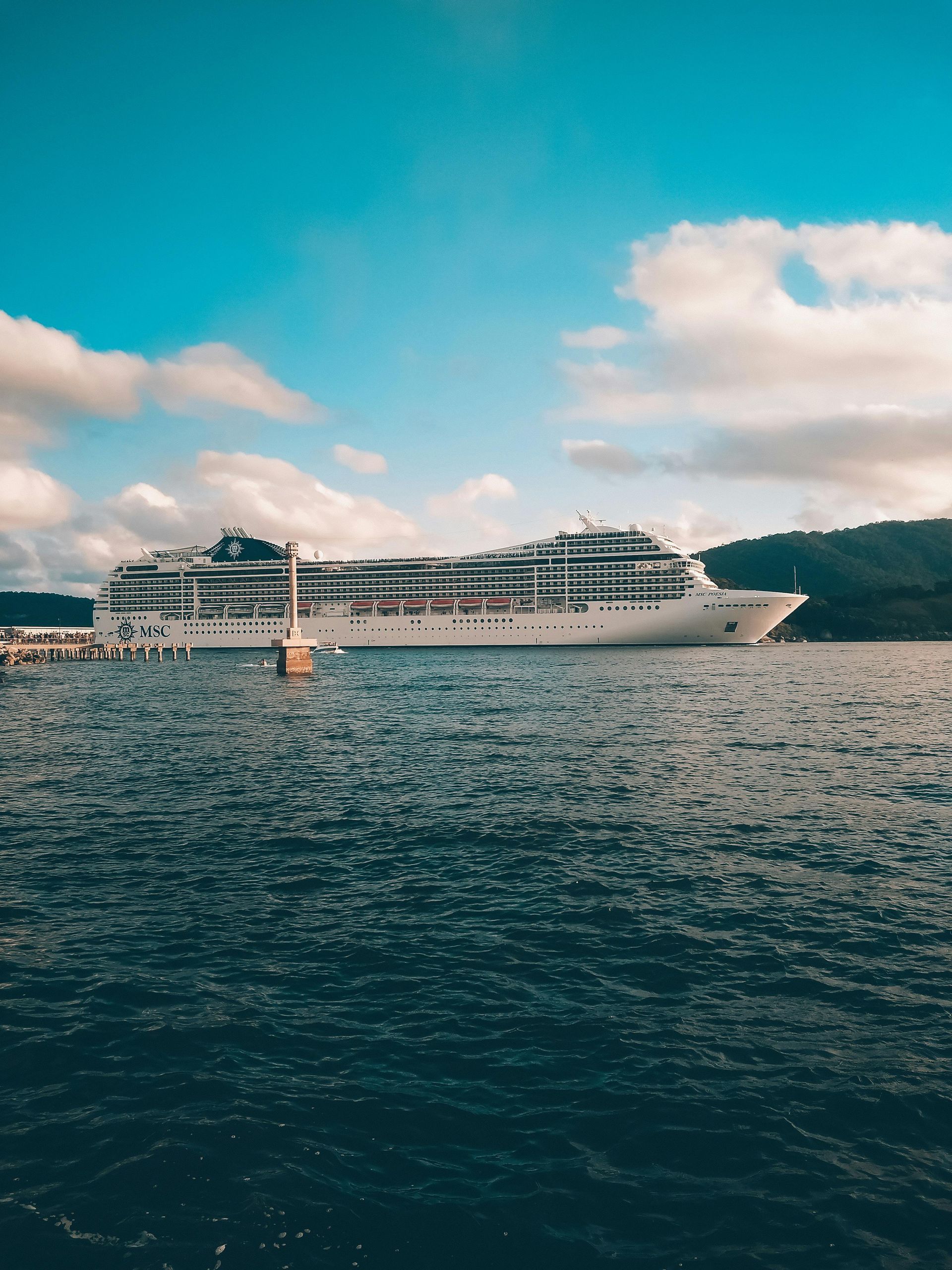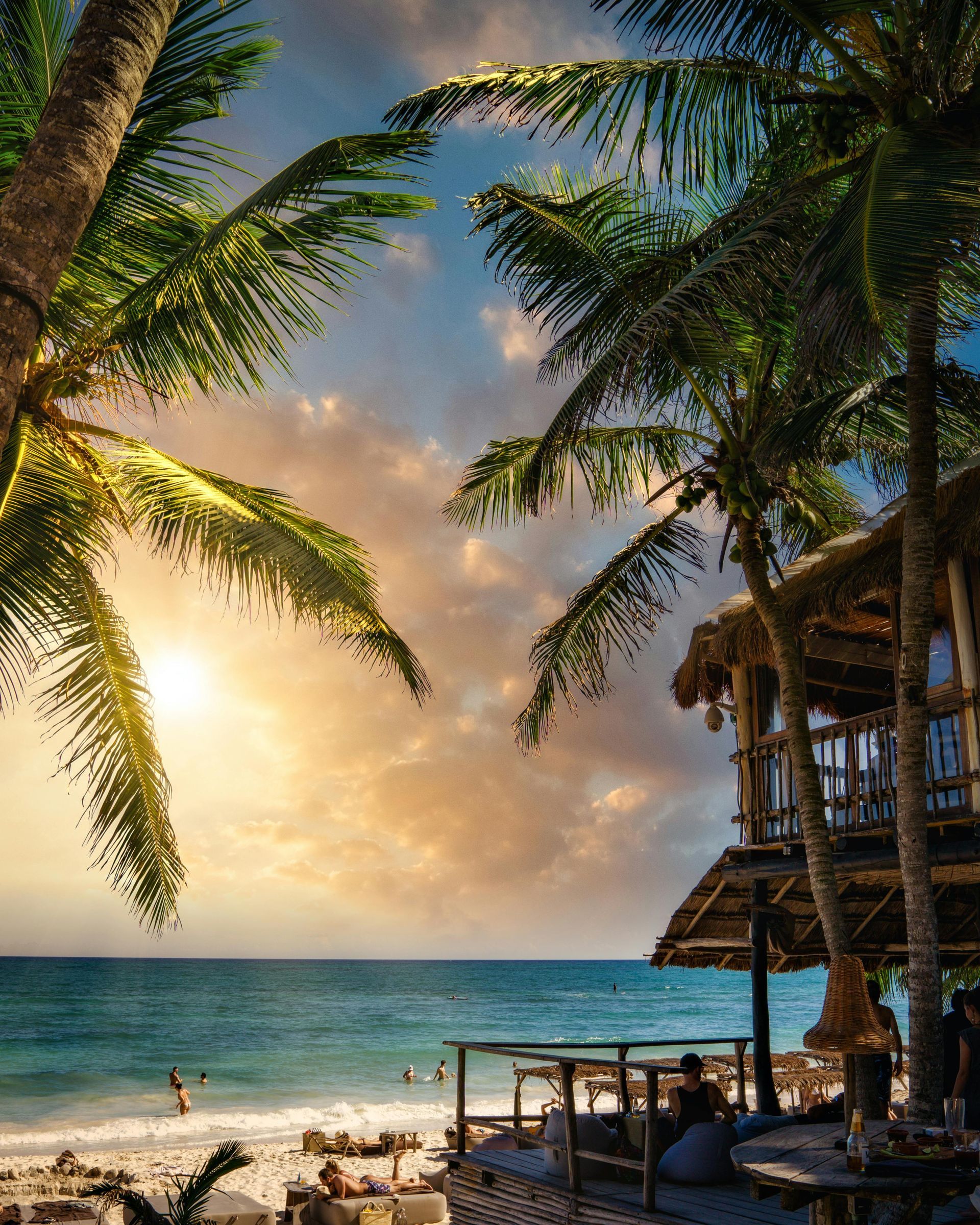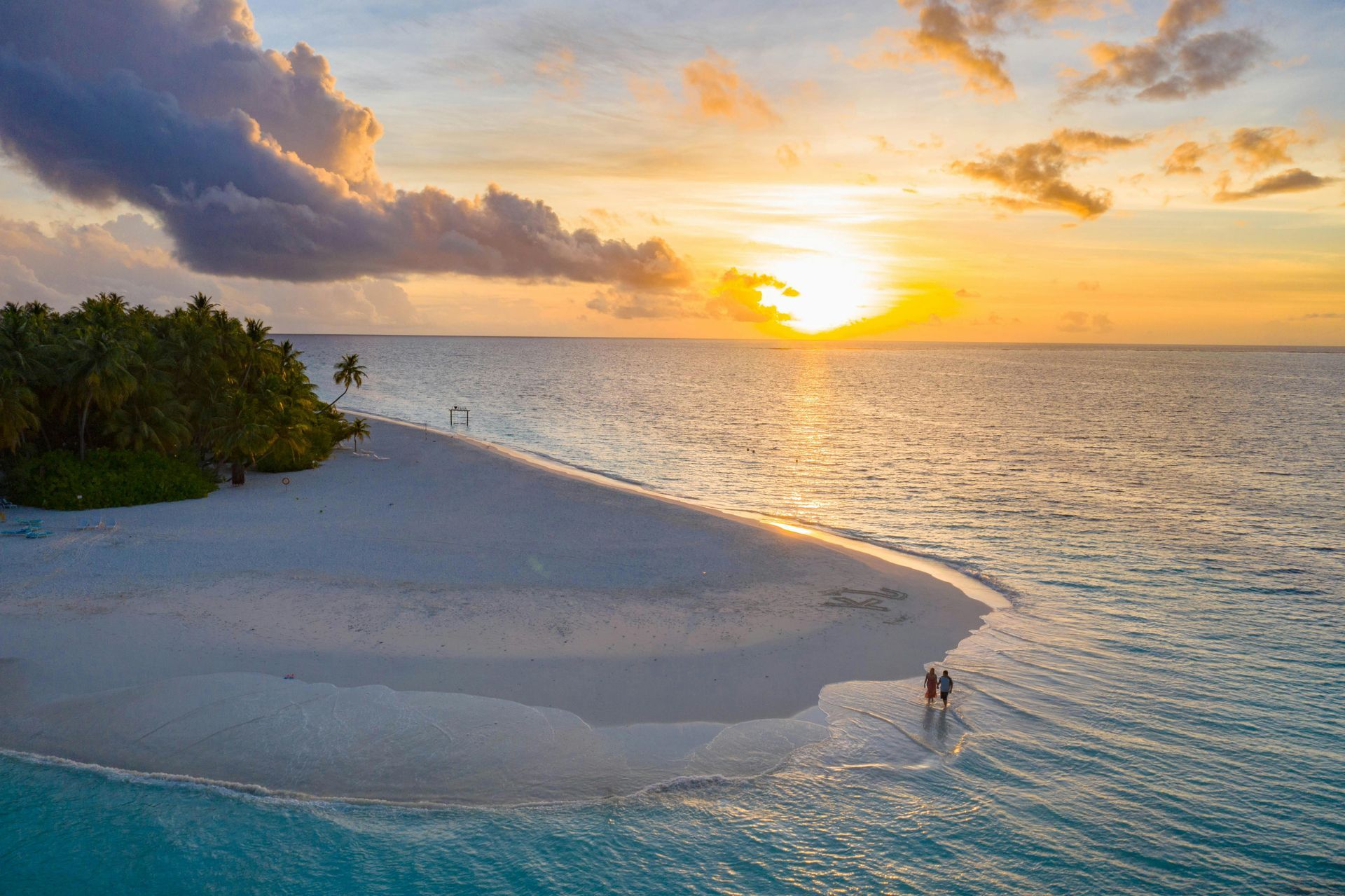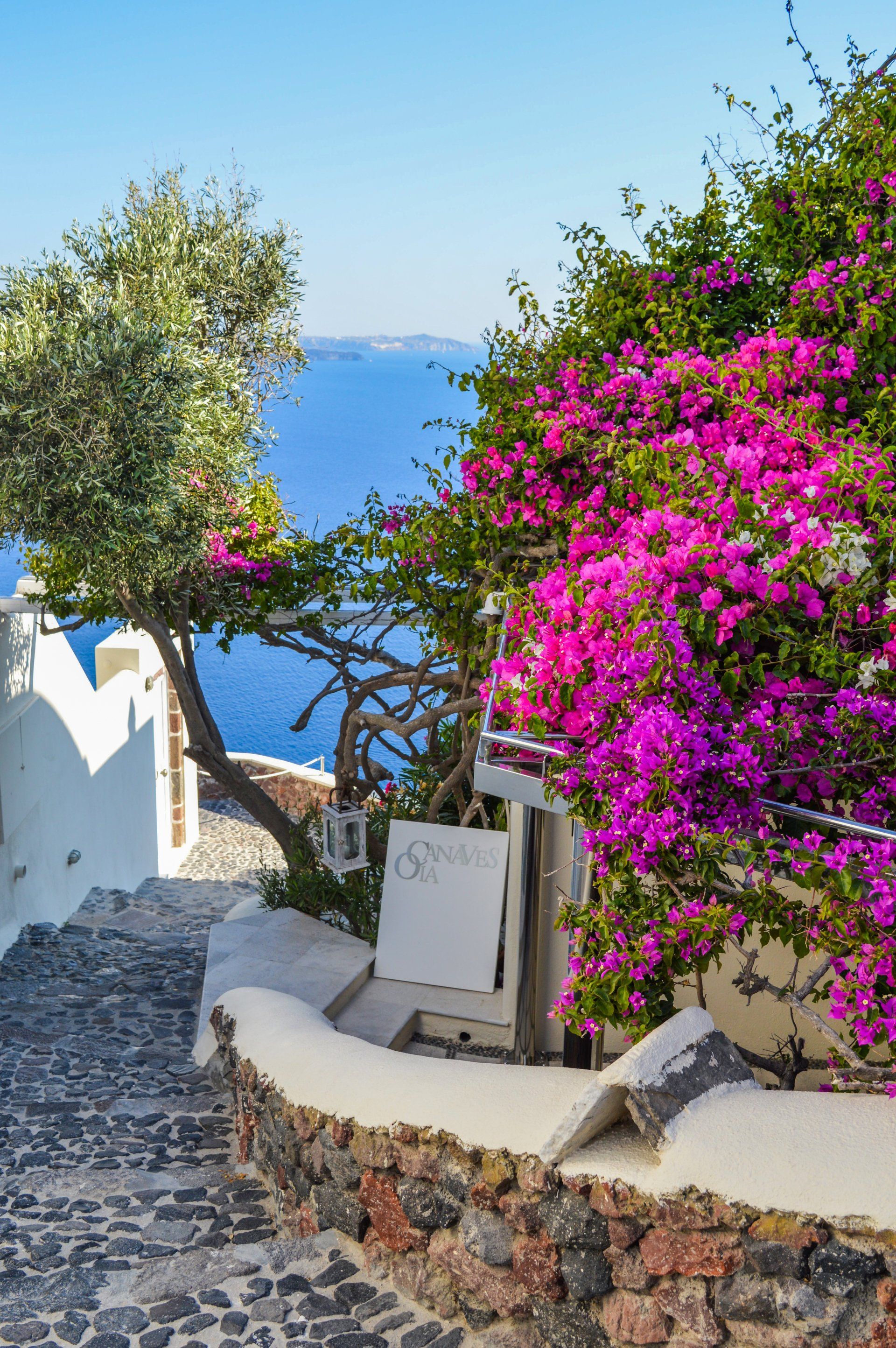By Kate Mpofu
•
July 9, 2025
I’m writing this from a simple apartment on the edge of the sea in Naxos. The sun is beginning to set, the water is still and clear, and the only sounds are the cicadas and the clinking of cutlery from a small taverna a few metres away. It’s peaceful, authentic and beautiful – everything a Greek island escape should be. And yet… it’s quiet. Too quiet. Where is everyone? Twenty or thirty years ago, places like this would be full of British families in July. They’d be staying in locally-owned studios, picking up fresh bread from the village bakery in the morning, eating out at small tavernas in the evening, and perhaps hiring a car for a day or two to explore a nearby beach or historical site. It was low-key, affordable, and often far more sustainable than what we’re seeing now. Back then, tourism felt more connected to the place . The money travellers spent was flowing directly into the local economy. You’d buy your fruit from the old lady in the corner shop, have lunch in a family-run café, and your children would play on the beach with local kids. The experiences were simple, but the memories lasting. So what changed? The Rise of the All-Inclusive Fast forward to today, and the holiday landscape looks very different. The all-inclusive resort model has become the dominant choice for many. Understandably so – it offers convenience, predictability, and value. Meals, drinks, kids’ clubs, entertainment, waterparks – it’s all there in one place, and paid for up front. For families on a budget, it’s an easy option. But at what cost? When travellers don’t leave the hotel, the surrounding village or town begins to suffer. Tavernas sit empty. Shops close early. Local traditions are no longer performed for visitors because there’s no one there to see them. It’s a slow erosion of what made these places special in the first place. If the only money being spent is going straight back to international hotel chains, how are the people who live here meant to benefit from tourism? The Sustainability Question We often hear about sustainable travel – but are we really making choices that reflect it? Supporting sustainability isn’t just about carrying a reusable bottle or skipping a daily towel change. It’s about considering the impact of where and how we spend. A family staying in a locally-owned apartment, eating in different restaurants each night and exploring the island in a hire car contributes to many layers of the local economy. One staying entirely within the walls of a large resort may contribute very little beyond the hotel gate. The reality is: every Euro matters . And where it ends up has long-term consequences. A Changing Tourism Industry As a travel agency, we’ve seen a clear shift in demand. Over the past 15 years, the interest in simple self-catering holidays has declined. Instead, people ask for more facilities, more inclusions, more ‘things to do on-site’. The idea of "convenience first" has shaped the kind of holidays that are now being built. But while we understand the appeal, we can’t help but feel something’s being lost. Is convenience now coming at the cost of connection? Are we so busy looking for the best deal or the perfect Instagram photo that we’re forgetting to actually experience the places we’re visiting? We’re currently travelling around the Greek islands – the small, easy-to-reach ones that are often skipped over in favour of Mykonos or Santorini. And what we’re seeing is both heartwarming and sad: raw, untouched beauty all around us, but very few visitors enjoying it. The beaches are quiet, the owners of small guesthouses are welcoming but concerned. The local cafés are full of character, but often empty. And yet, the views are every bit as photo-worthy as the more famous spots – just without the crowds. Time to Rebalance? We’re not saying all-inclusive holidays are bad – they serve a purpose, and for many, they make travel possible. But perhaps it’s time to rebalance our approach . Maybe every second or third trip could be a return to the old way: a locally-owned apartment, a wander to the village each evening, and the chance to chat to the waiter about where they recommend visiting tomorrow. Sustainable tourism isn’t about sacrifice – it’s about intentional choices. It’s about stepping back and asking: What kind of impact am I having by being here? Why It Still Matters Because if travellers stop coming to these quieter places – the Naxos villages, the hidden coves of Paros, the hillside hamlets in Tilos or Amorgos – they may stop existing in the way we know and love. The old man who rents out two simple rooms above the sea may no longer bother. The family-run taverna might close, not because it’s not good enough, but because there’s no one left to serve. Do we really want a future where the only way to holiday is behind the gates of a resort? In Conclusion As we sit here on a quiet stretch of Naxos coastline, eating fresh fish from the taverna next door, we’re reminded that the beauty of travel lies in simplicity – in slowing down, noticing the details, and supporting the communities that make these places special. Maybe it’s time we all asked ourselves: What kind of traveller do I want to be? And what kind of tourism do I want to support? Written by Kate - Worldwide Travel Solutions, on the island of Naxos. We support slow, thoughtful travel – and we know our clients do too. (Images & content are my own and may not be copied without prior agreement)
